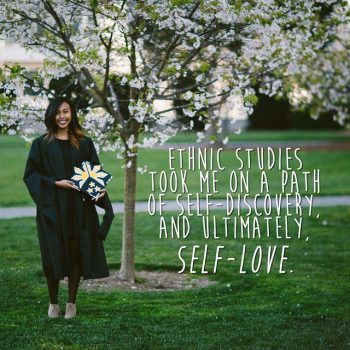Lessons from Ethnic Studies on Strategic Courage
By Andrea Romero and Michelle Téllez
On May 5 2011, a small group of faculty from the Arizona Ethnic Studies Network gathered in Tucson following a devastating Tucson Unified School board meeting where the Mexican American Studies program in the district was ended. It was a blow that was felt deeply by us all. We came together as scholars from universities and colleges across the state to publicly voice our support for Ethnic Studies. This was in the aftermath of HB 2281 that banned courses that “(1) promote the overthrow of the U.S. government (2) promote resentment toward a race or class of people or are (3) designed primarily for pupils of a particular ethnic group (4) advocate ethnic solidarity instead of the treatment of pupils as individuals” (AZ House Bill 2281, 49th Legislature, 2010). This bill was used to target, monitor, and dismantle a successful Mexican American Studies curriculum, despite the fact that external auditors determined that the courses were academically successful and promoted positive group interactions (Cabrera, Millem, Jaquette & Marx, 2014; Cambrium Audit, May 2, 2011). In response, we worked as a network to ensure our critiques were made public and to support those teachers and students who were being directly attacked. It was from this source of collective action that we drew strength, and from these activities was born new research, new relationships, stronger students, and a highly aware and involved community.
We find ourselves again at a point in U.S. history where higher education is under conservative scrutiny and new “watchlists” for “dangerous” professors are being created and used to threaten and intimidate scholars in the academy. We live in a country that has been shaped by a particular history of exploitation, genocide, and exclusion. In this, Arizona is not an anomaly, but the norm. However, given the legislative battles we have had in in this state over the last six years, it seems important to comment both on our experiences and on what we imagine our role as Ethnic Studies scholars to be in the coming years given the emergence of what mainstream media Continue reading

